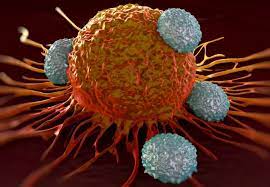06 September 2023 | Wednesday | News

Image Source | Public Domain
Over the past few years, exosomes have gained significant attentions as a promising drug delivery vehicle in both academic and biomedical industry circles. These native cell-based nanoparticles have successfully been employed to transport antisense oligonucleotides (ASO), proteins and small molecules in numerous clinical trials, showing low immunogenicity and good safety profiles. Nevertheless, their therapeutic potential for loading and delivering siRNAs remains relatively unexplored.
While the approval of several siRNA drugs is gaining momentum, and the RNAi field is experiencing dynamic growth, the available delivery options for siRNA drugs remain limited. Achieving successful delivery of siRNAs to tumor tissues and non-hepatocyte cells still represents an unrealized potential throughout the world.
In this study, the VesiCURE team utilized their "dilEVry" platform to load exosomes with tumor-inhibiting siRNAs. When administered intratumorally in a CDX tumor model, this approach resulted in progressive inhibition of tumor growth overtime. Furthermore, a biodistribution study exhibited a notable accumulation of dye-labeled exosomes within the tumors, strongly indicating the potential of exosomes for delivering siRNAs into tumors through intravenous infusion, a development currently underway in-house.
The publication also presented compelling findings, revealing the absence of systemic toxicity impacting body weight, which provides substantial evidence supporting the continued development of "dilEVry" EVs as a promising treatment option for various human diseases.
© 2026 Biopharma Boardroom. All Rights Reserved.